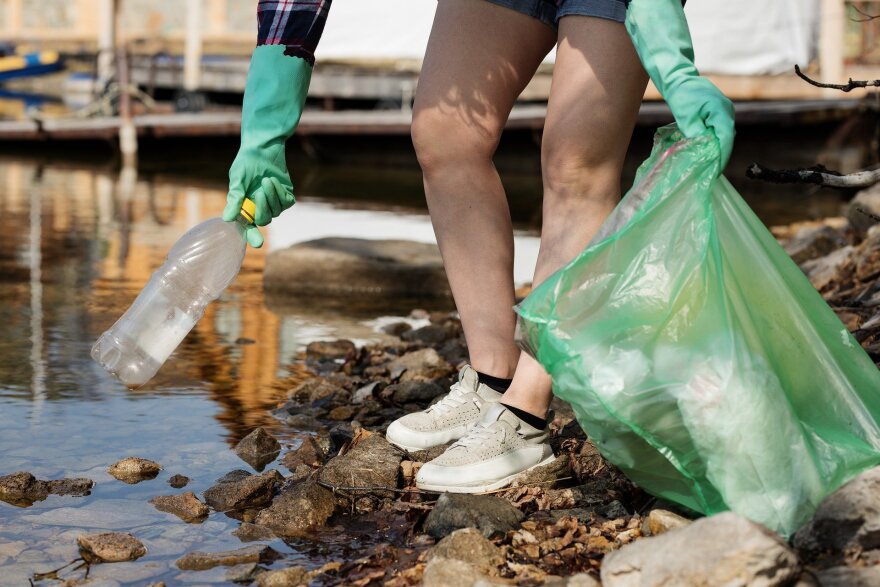The following is an unedited transcript.
USU Water Quality Extension is leading Pack It Out Utah this month. This is a statewide trail and waterway cleanup that partners local governments, nonprofits, organizations, and volunteers across Utah. Joining me today is Hope Braithwaite, a USU, extension assistant professor for watershed quality.
Kailey Foster- First, can you just give us a basic overview of this project that you guys are doing?
Hope Braithwaite- Yeah, so the statewide effort to basically clean up trash anywhere, trails, waterways, anywhere that you can get to even a local park.
There are two ways of getting involved, you can find a local event near you, we have a lot of awesome partners that are doing in-person events and cleanups. Or you can just get involved on your own or with a family member or friend.
And we have all that information on our website, the cleanup goes from September 11 through the 19th. So anytime that you go out and collect trash during that time, if you submit that data to us register online and submit that data, then it will count toward this big collection, this big effort to collect trash throughout the state. And see how much we can get rid of.
One important part of this is not only to pick up that trash, but to make sure it gets properly disposed of and, of course, recycle whenever you can.
KF- So one thing I know is, thanks to the internet, we've all seen photos of trash on our trails or watersheds and how it affects animals. But I guess, can you go on about how this trash can affect water quality?
HB- Yeah, that's a good question. And one, probably, connection that people don't make super easily is even if there's trash, say on a roadway, when it rains or snows when there's water that moves that trash down. It can go into our storm drains, and then eventually out into our rivers. It can end up in lakes, you're along the Wasatch Front, a lot of that will end up in the Great Salt Lake.
And so, there are definitely issues of the water quality. There’re aesthetic issues of seeing that trash there too. But then it can also increase the number of pollutants in terms of chemical pollutants that can affect wildlife and habitats. Just transports other things along with it. And not only the physical thing but the chemicals and when it breaks down.
KF- For those of us not participating in this event per se. How can we be involved all year round?
HB- Yeah, that's a really good question. There's a lot of ways you can. If you're going on a walk, you can collect trash. I know for me, if I'm hiking, I can unintentionally leave a wrapper, or something could fall out of my backpack. So, if you can try and leave a place better than you found it and help pick up trash just wherever you are.
Another great way to get involved, if you're interested in water quality, is we have a volunteer citizen science program. And so, if you're interested, it's called the Utah Water Watch and you can just easily Google that but that's another way to help us keep an eye on the water quality in Utah.



